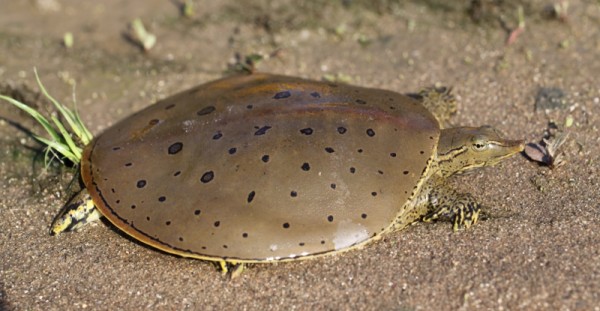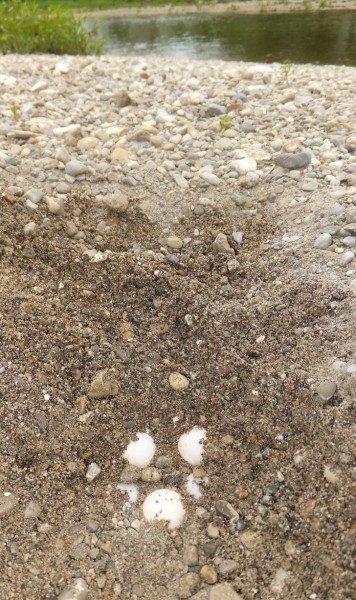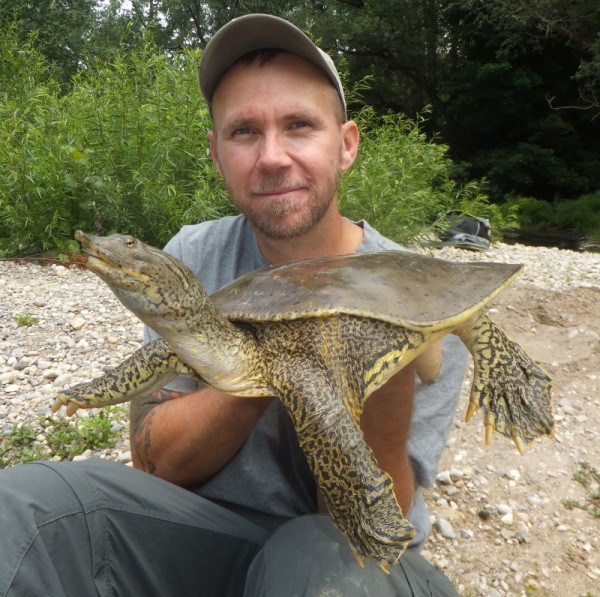Turtle Tuesdays: A unique Canadian Turtle Species
For the month of July, WWF will be celebrating turtles every Tuesday! July is a great time of year to have a conversation about turtles, when people and turtles alike are out basking in the sunshine and enjoying fresh water.
Written by Scott Gillingwater, Species At Risk Biologist, Upper Thames River Conservation Authority
Despite a slight delay due to a long, cold winter and cool spring, threatened spiny softshell turtles are again nesting along the Thames River in southwestern Ontario. The flat, leathery shell, snorkel-like snout, and great speed of the spiny softshell make it unique among Canadian turtle species. Unfortunately, however, being unique provides very little protection from human-caused threats.

Over the past few decades, spiny softshell turtle populations have been significantly declining as a result of considerable increases in threats along the Thames River, and throughout Ontario in general. There is no single threat, but often many stressors at once that affect each local population. Some of these include the destruction of nesting areas from flooding, invasive exotic plants, trampling by cattle, all-terrain vehicle use, and other human recreational activities. Turtle eggs are also lost due to unnatural increases in predator populations, as well as poaching for the illegal pet, food or medicinal trades. Similarly, adults are also affected by poaching; in addition they are at risk of injury and mortality due to accidental capture on hooks by people fishing, boat strikes, road mortality and intentional human persecution (eg. shot for target practice).
The decline of this unique species is imminent unless we work to actively reduce threats to the turtle and its habitat. That’s why we are taking a multi-tiered conservation approach to ensure their survival: Working with landowners to protect habitat; seeking assistance from local community members in reporting observations; working to enhance and create habitat; and protecting the eggs of the spiny softshell turtle!

As part of our egg protection program at the Upper Thames River Conservation Authority, nests are located through visual cues. Once located, eggs are either protected with a cylindrical wire cage, or excavated and artificially incubated. As young emerge from the eggs, they will be sexed, measured, weighed, and released back to where the eggs were originally found. As part of our conservation efforts we also capture, measure, assess health, mark and release adult and juvenile turtles in the wild.

We want to ensure our efforts provide long-term information on the health and recovery of this very unique species and its habitat. Declines are due to human interference, but now it’s human intervention that is necessary to save Canada’s spiny softshell turtle!
The Upper Thames River Conservation Authority gratefully acknowledges the support of WWF-Canada and the Beryl Ivey Fund on this project.
